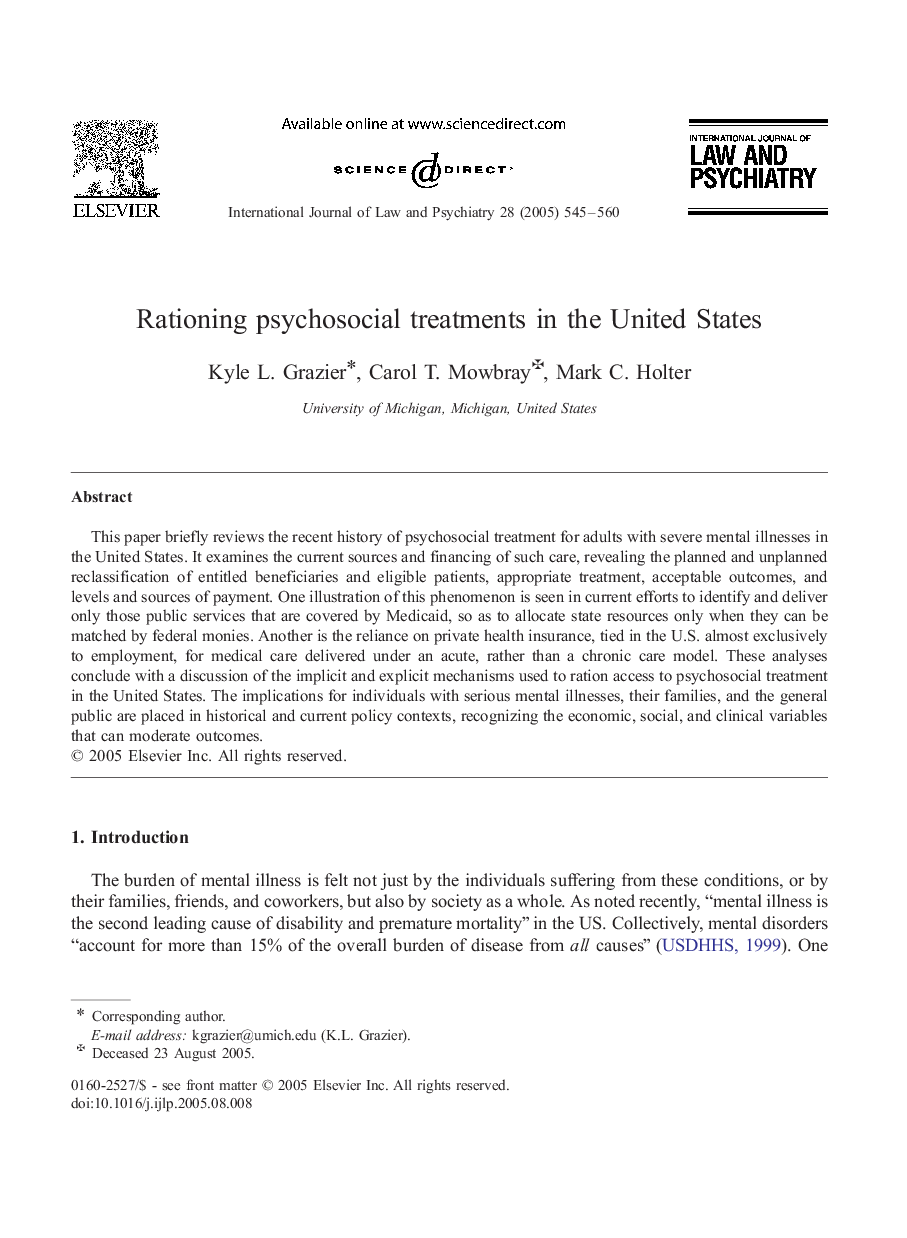| Article ID | Journal | Published Year | Pages | File Type |
|---|---|---|---|---|
| 9623328 | International Journal of Law and Psychiatry | 2005 | 16 Pages |
Abstract
This paper briefly reviews the recent history of psychosocial treatment for adults with severe mental illnesses in the United States. It examines the current sources and financing of such care, revealing the planned and unplanned reclassification of entitled beneficiaries and eligible patients, appropriate treatment, acceptable outcomes, and levels and sources of payment. One illustration of this phenomenon is seen in current efforts to identify and deliver only those public services that are covered by Medicaid, so as to allocate state resources only when they can be matched by federal monies. Another is the reliance on private health insurance, tied in the U.S. almost exclusively to employment, for medical care delivered under an acute, rather than a chronic care model. These analyses conclude with a discussion of the implicit and explicit mechanisms used to ration access to psychosocial treatment in the United States. The implications for individuals with serious mental illnesses, their families, and the general public are placed in historical and current policy contexts, recognizing the economic, social, and clinical variables that can moderate outcomes.
Related Topics
Health Sciences
Medicine and Dentistry
Forensic Medicine
Authors
Kyle L. Grazier, Carol T. Mowbray, Mark C. Holter,
